A couple of months ago we ran an article on structured barrels. At that time this type of barrel, manufactured by Tacom HQ – an American company with a serious interest in long-range rifle shooting – was the first one in the UK.
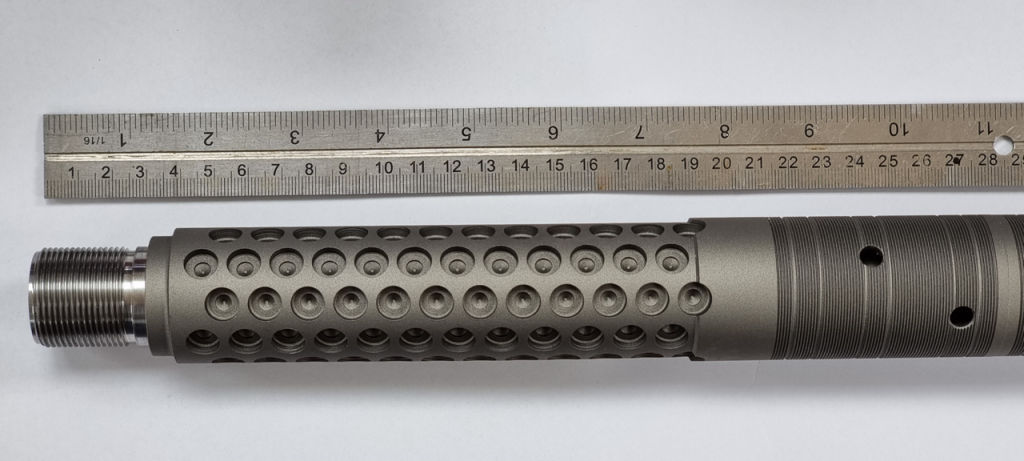
In part 2 we will look at the actual rifle build but, if you missed part 1 and would like to know a little more about the background to structured barrels then please click on
So, in part 1 we witnessed Stuart Anselm of GS Precision chambering the barrel for the Tubb 33XC cartridge – an ‘improved’ version of the 338 Lapua Magnum giving a little more help in flinging 300 grain bullets out to two miles – and fitting and headspacing the Stiller TAC 338 action. After proofing, the next job was the not so simple issue of the muzzle-brake.
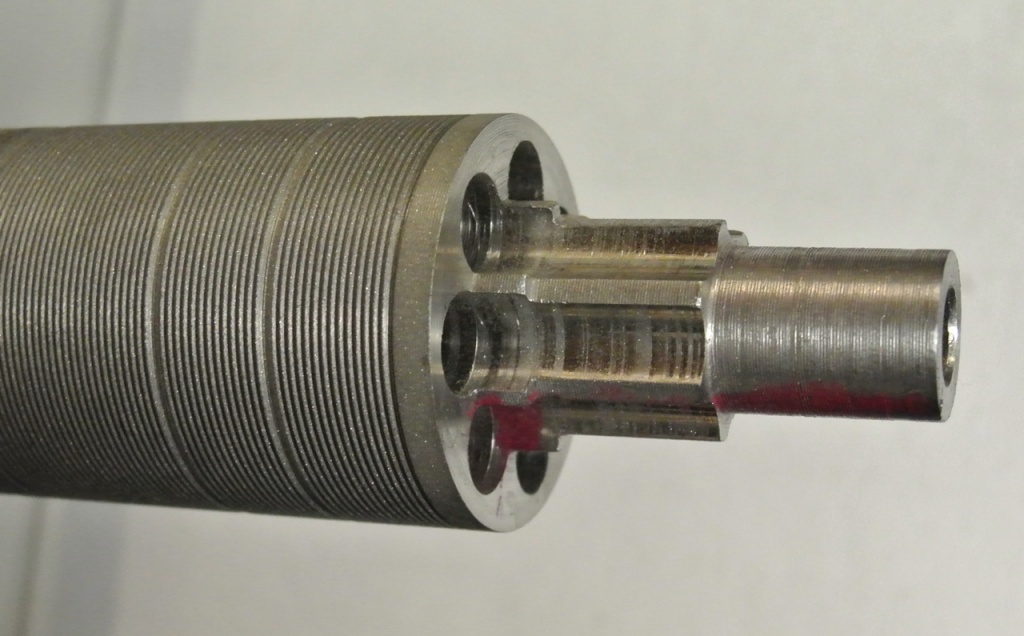
If you examine the barrel’s muzzle as supplied, you will see that the installation of a brake is not so straightforward as with a conventional barrel. The muzzle threads are interrupted by the drilling of the seven ‘radial’ holes which need to be kept open-ended to allow a free flow of air via the holes at the breech end (see pic above at top of article). Also, the holes must not receive ‘back pressure’ via the ‘brake.
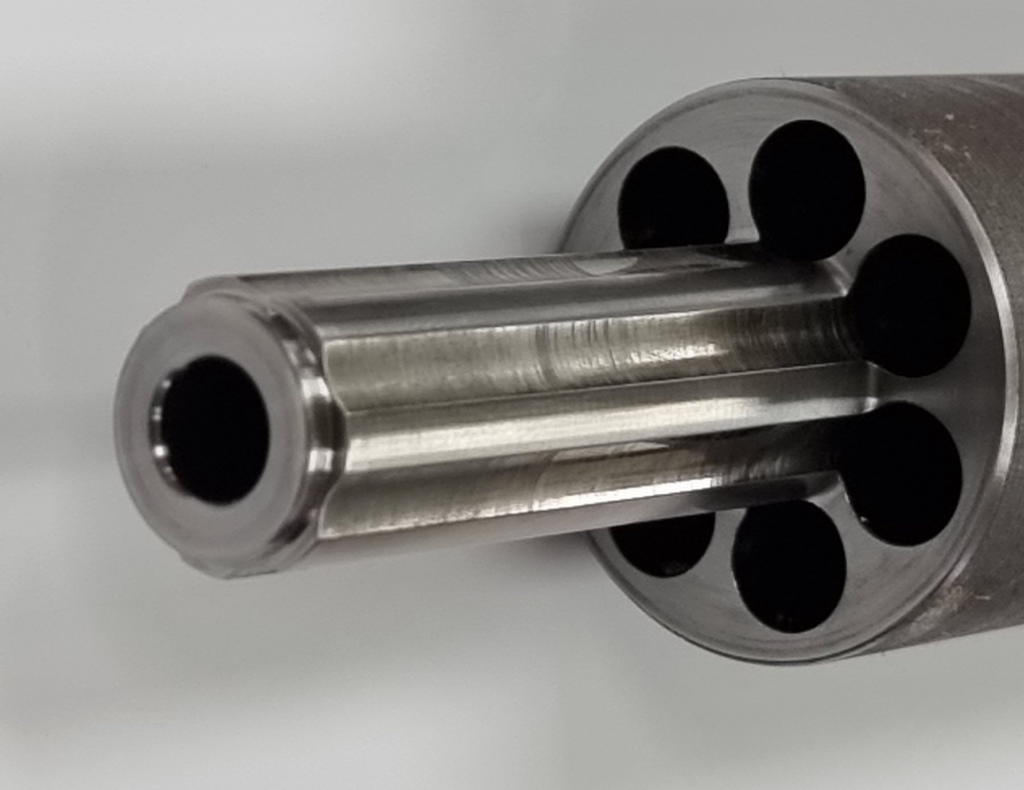
This resulted in an unusual ”spacer’ design which was extremely demanding to manufacture and the task was trusted to an engineering company more used to manufacturing Formula 1 parts. The result is visually stunning but eye-wateringly expensive………… The spacer will be fixed with JB Weld and will not be removed.
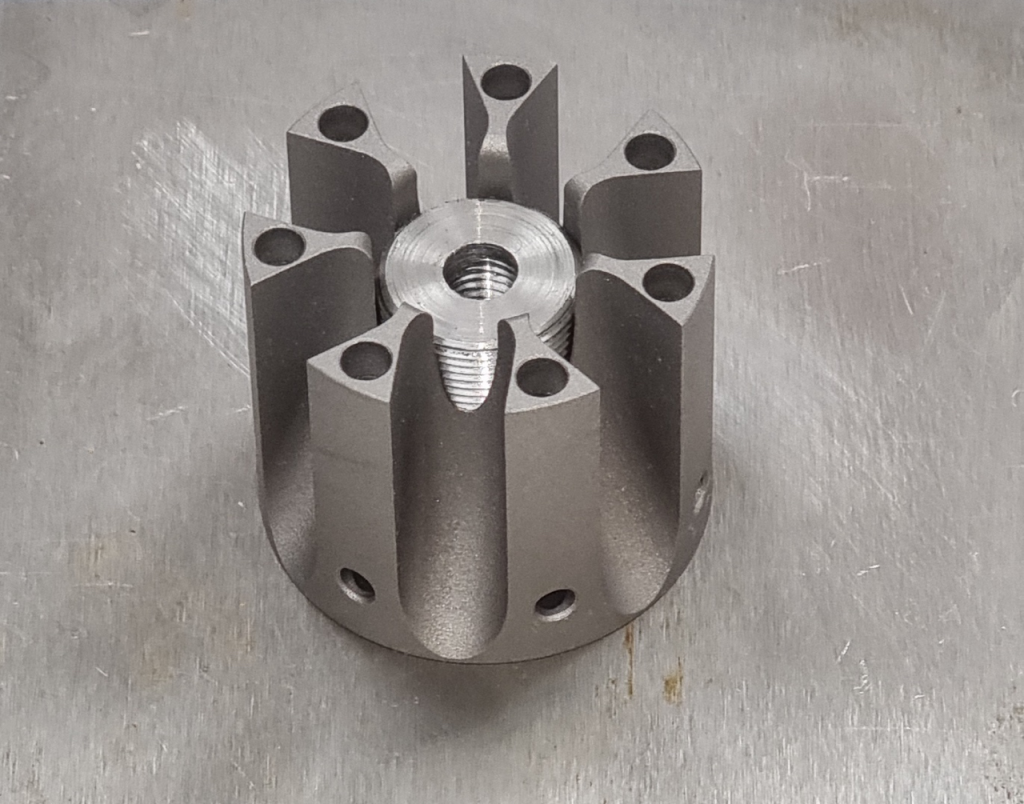
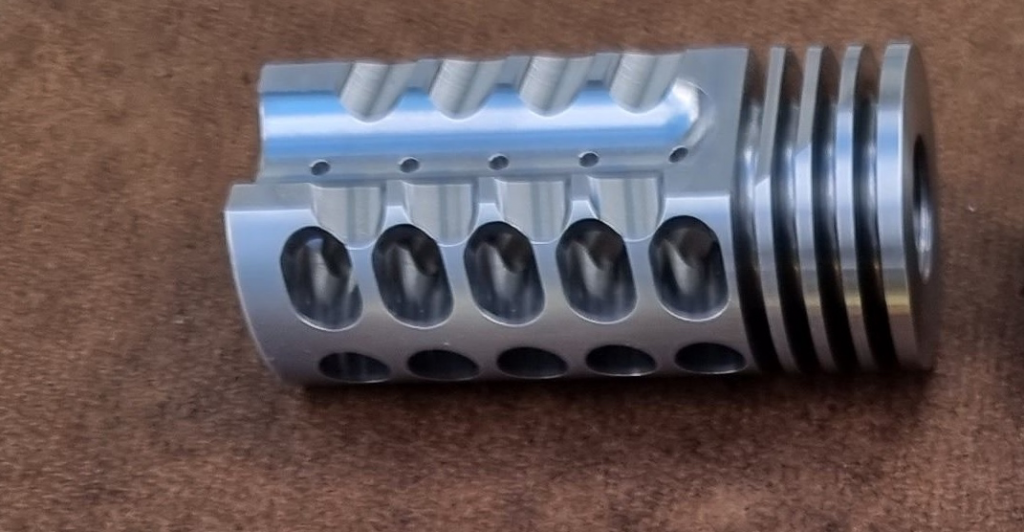
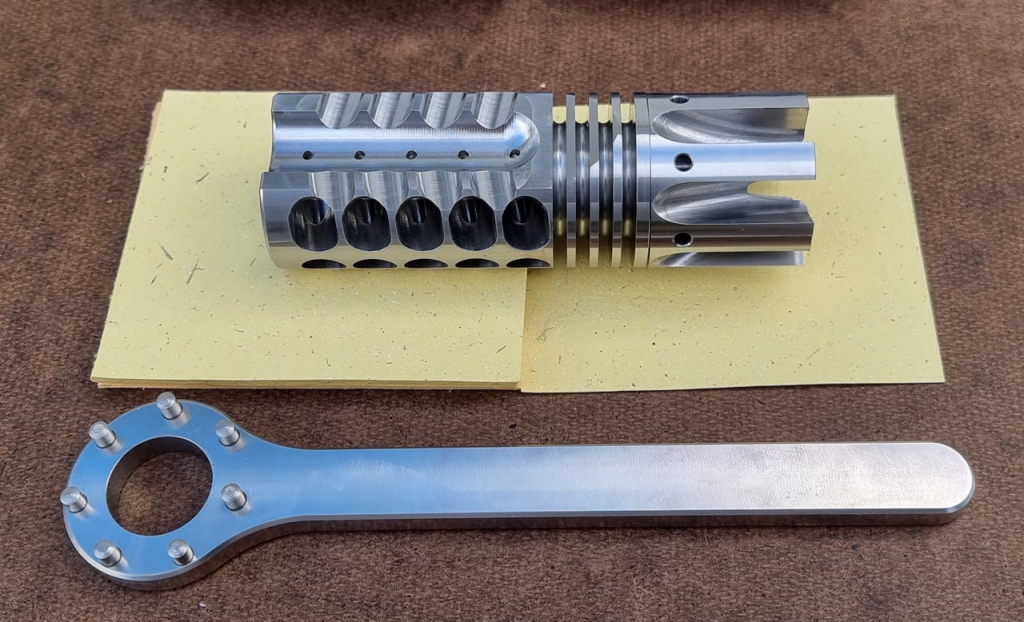
Timing the ‘brake was the final machining process – save for some minor milling work on the Cadex chassis Picatinny rail – so assembly can now begin.
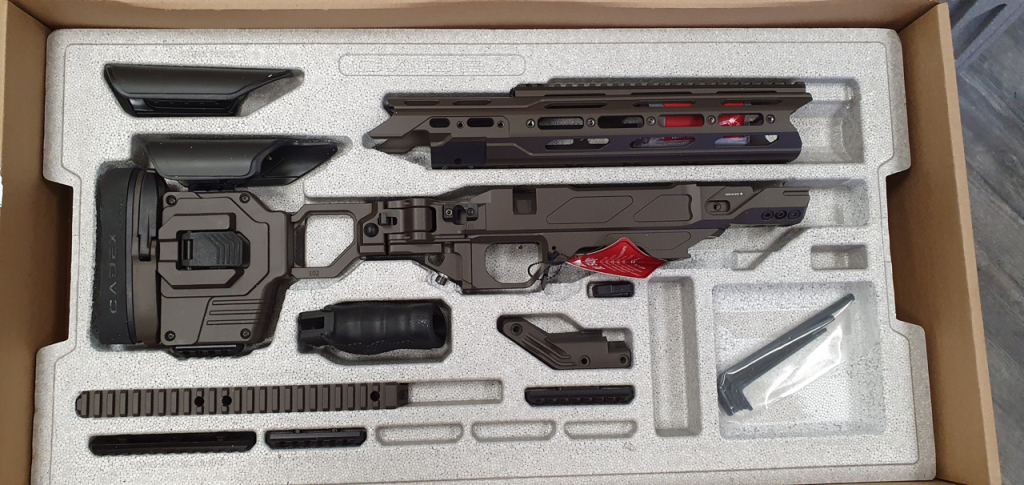
The CNC rifle chassis is now common place but this is my first encounter with a Cadex chassis. In a word – fabulous and that enormous Tacom structured barrel just doesn’t look out of place.

After fitting the Triggertec Diamond trigger, dropping a barrelled action into a CNC’d chassis should be a simple matter of doing up two ¼ UNF screws – and it was. The Cadex has a unique mounting/bedding arrangement which uses floating roller bearings to perfectly support the action. Incidentally, if you’re not familiar with the Canadian Triggertec Diamond, this is a good choice for this rifle – adjustable from 4 to 32 ounces, it’s the perfect competition trigger for anything but a true benchrest gun – without breaking the bank.

The final touch is to mount the March Genesis scope, which offers 400 MOA adjustment for ultra long-range shooting. After bore-sighting, it was time to put a few of David Tubb’s ‘Final Finish’ bullets down the barrel. If you’re not familiar with this system please have a look on David’s website www.davidtubb.com which explains the theory of barrel break-in and is worth considering if you are running a ‘barrel-burning’ cartridge.
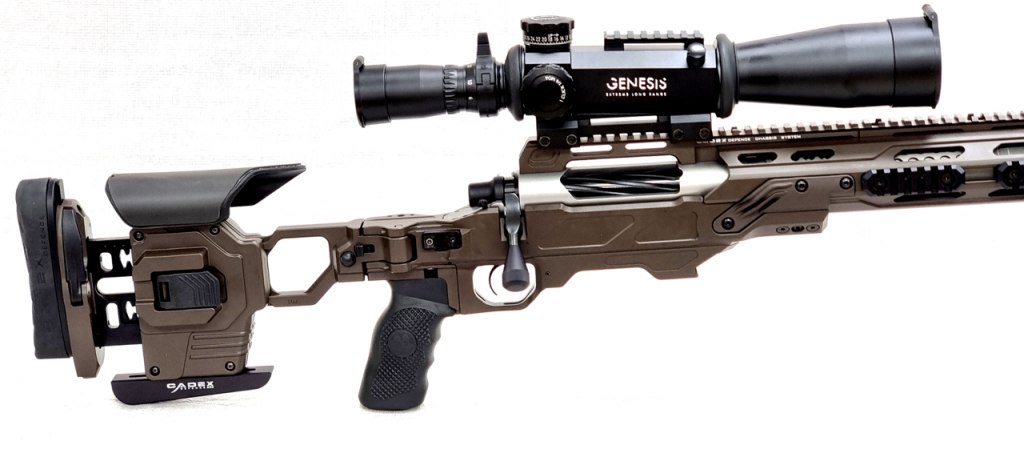
Next time we will hopefully witness testing of the rifle at longer range and see if all the theory behind structured barrels actually works.
